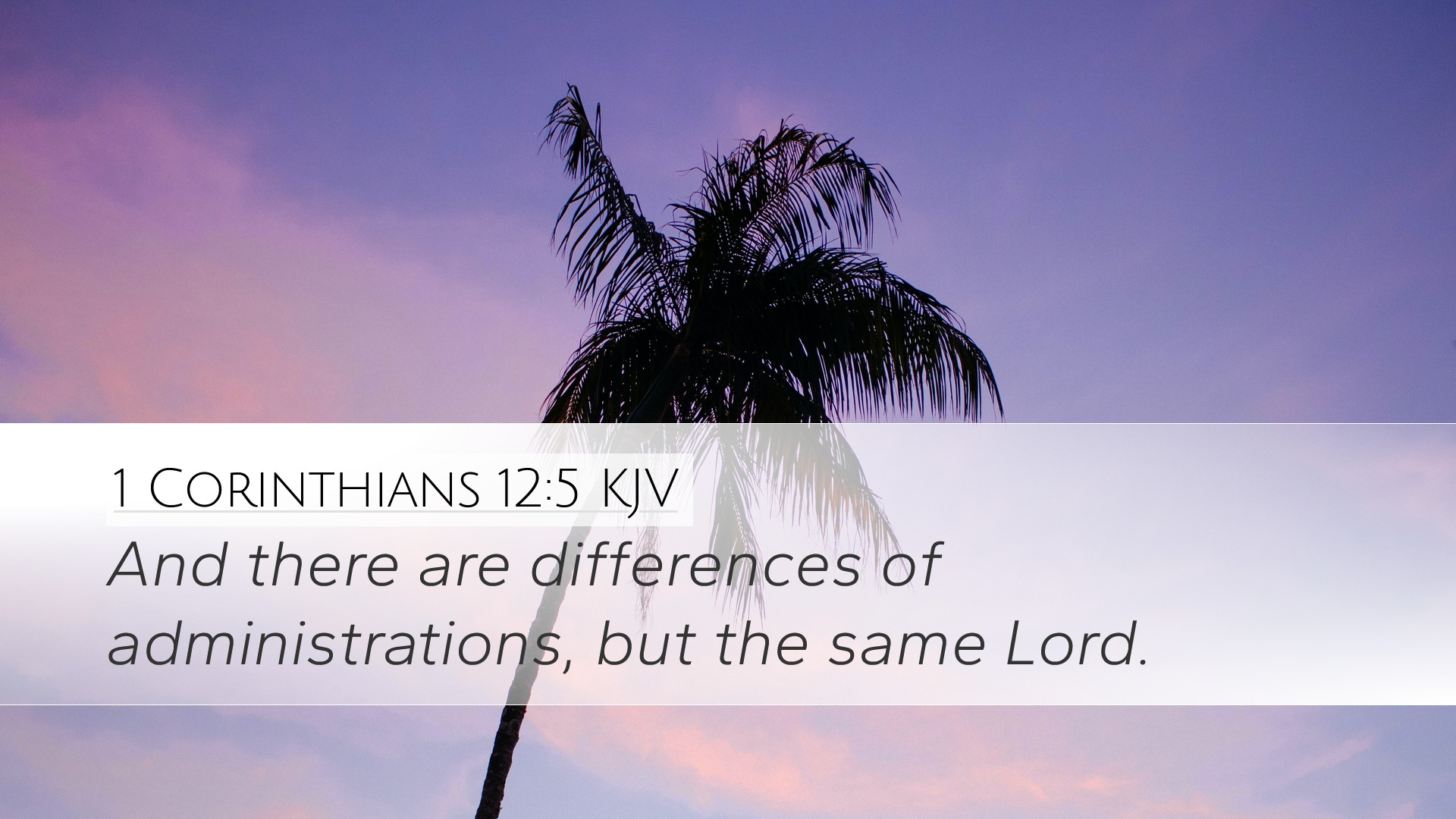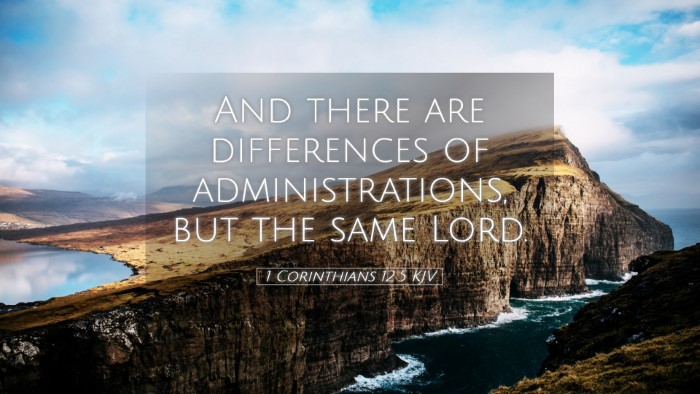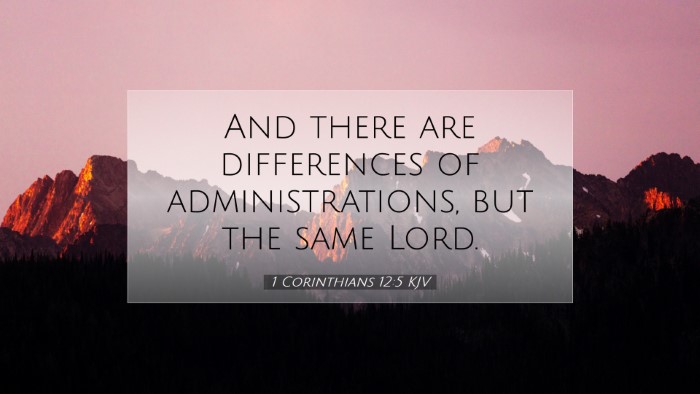Commentary on 1 Corinthians 12:5
1 Corinthians 12:5 states, "And there are differences of administrations, but the same Lord." This verse forms part of the apostle Paul's discourse on the unity and diversity within the body of Christ, emphasizing that while there are different functions and roles, they all serve a singular purpose under the lordship of Jesus Christ.
Exegesis and Insights
This verse can be dissected into several key components that merit in-depth exploration. Here we combine insights from esteemed public domain commentaries.
Administration of Spiritual Gifts
Matthew Henry highlights that the term "administrations" refers to the various styles of ministry and service within the church. These different kinds of administration are necessary for the body of Christ to function effectively, as each member has unique gifts and functions. Henry asserts that this diversity should not lead to discord, but rather foster unity, as they are all coordinated by the same Spirit.
The Unity of the Lord
Albert Barnes further elaborates that the phrase "but the same Lord" serves as a reminder of the centrality of Christ in the administration of these gifts. Despite the variety of roles and functions within the church, they all originate from the same divine source. Barnes emphasizes that this unity under Christ fosters harmony within the church, and it is vital for believers to recognize and honor this divine order.
Different Roles, Same Purpose
Adam Clarke expounds on the concept of varied roles within the church, stating that it is imperative to appreciate the distinct functions that each member plays. He points out that these differences are divinely ordained and serve the greater mission of the church. Clarke notes that the recognition of these differences allows the church to benefit from the multitude of perspectives and gifts that God has bestowed upon His people.
Theological Implications
There are significant theological implications arising from the truth expressed in 1 Corinthians 12:5.
- Unity in Diversity: The verse reinforces the idea that diversity does not disrupt unity but is essential for the body of Christ to thrive. Each believer, gifted uniquely, contributes to the overarching mission of the church.
- Divine Sovereignty: Acknowledging Christ as the ultimate source of all gifts underlines God’s sovereignty in spiritual matters. This sovereignty shapes how believers should serve and interact with each other.
- Empowerment for Service: Understanding that all ministries are directed by the same Lord empowers believers to engage actively in service, knowing that their efforts have a divine purpose and significance.
Practical Application
The implications of this scripture extend into practical applications for both the church leadership and congregants.
Encouraging Participation
Leaders should utilize this passage to motivate church members to participate actively in church functions, highlighting that their unique contributions are valued and necessary.
Establishing a Culture of Respect
This verse calls for a culture of respect for various ministries within the church. Congregants should strive to work collaboratively, recognizing that each role is essential to the health of the body.
Fostering Spiritual Growth
Churches should encourage spiritual growth by helping individuals discover and develop their spiritual gifts, creating a community where everyone can exercise their gifts in accordance with the love and teachings of Christ.
Conclusion
In conclusion, 1 Corinthians 12:5 provides a rich tapestry of truth regarding the administration of spiritual gifts within the church. It serves as a call to embrace both the diversity and unity found in the body of Christ. This scriptural truth is vital for pastors, students, theologians, and scholars to grasp as it shapes the identity and mission of the church.


